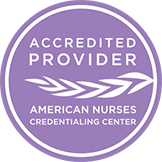Understanding what types of medications your residents are taking is another part of assisting with medication self-administration. Learning about the different classes of medications and their most common side effects is an awesome responsibility.
Analgesics relieve pain, which can affect every aspect of a resident's daily life. They can be narcotics and non-narcotics. Keeping narcotics safe is another part of assisting with medications. You must follow instructions carefully and document them precisely. One of the most common but potentially severe side effects is sedation. If the resident becomes too sleepy, your observation is very important. Always make sure that you give the pain medication at the correct time. Given too early, the resident may become too lethargic; given too late, the pain may be hard to control.
Antacids, such as Maalox®, Zantac®, and Tums®, reduce indigestion and heartburn by slowing down the rate of stomach emptying and neutralizing stomach acids.
Antibiotics control infections. There are many types of antibiotics, and most are for specific infections. Infections can be deadly if not treated quickly and effectively. These medicines must be given exactly as the physician writes the order. If the order is to be given four times a day for seven days, that is exactly what you do. Another infection may occur if the medicine is stopped before the correct doses are given. Or, even worse, a "super" infection may result. The superinfections are very hard to stop once they begin. They are resistant to antibiotics.
Anticoagulants thin the blood, slowing clotting. The most common anticoagulant is Coumadin; this medication helps to prevent blood clots. It must be given exactly as ordered. In addition, side effects must be monitored closely. So, as a medication assistant, you must look for new bruises or actual bleeding.
Anticonvulsants control seizures. When anticonvulsants are given routinely, the chance of seizures is less. These medications should be given on schedule and at the same time every day. If seizures increase, the physician must be notified.
Antidepressants are used to treat depression. They must be taken every day. Stopping them or skipping them can cause increased depression.
Antihypertensives control blood pressure, which should be monitored for highs and lows. If it is too high or low, tell the charge nurse immediately.
Diuretics help the body get rid of excess fluids through the urine. Try to give these medications as early in the day as possible because otherwise, the resident will not feel comfortable going out for activities. If given late in the day, the resident may lose sleep because of the need to urinate at night.
Antihyperlipidemic medication helps reduce excess fat in the blood (high cholesterol). These medications should be given at 5 p.m. unless the physician orders a specific time.
Hypoglycemic oral medications lower the level of glucose in the blood. You cannot give insulin. If a resident's blood sugar is too low, it may become hard to wake them up. If so, notify the charge nurse.
Antipsychotics treat the symptoms of mental disorders such as schizophrenia, depression, bipolar disorder (sometimes called manic-depressive illness), anxiety disorders, and attention deficit hyperactivity disorder (ADHD). Side effects from these medications are usually severe, so watch the resident closely. If a resident begins new behavior like shuffling while walking or drooling, notify the charge nurse.
Laxatives increase the frequency and ease of bowel movements. Laxatives come as pills, liquids, or suppositories. Laxatives may be a prescription or over-the-counter. Too many laxatives can reduce essential electrolytes and minerals. They can become dehydrated, which can lead to more severe illnesses such as urinary tract infections.
Side Effects
When watching for side effects, if the resident is having a severe reaction to a medication, call for help immediately. Severe reactions can happen to anyone at any time and include trouble breathing, tongue swelling, rashes, severe dizziness, nausea, and vomiting. An extremely severe reaction is anaphylaxis, a medical emergency that requires immediate attention. If you are alone, call 911 as soon as you observe any of these reactions.
Significant side effects to watch for are:
- Dizziness/fainting
- Nausea/vomiting
- Rash/hives/itching
- Difficulty breathing
- Headache
- Drowsiness
- Any other unusual sign






